Past Speakers
Norman Williams Distinguished Lecture
in Land Use Planning and the Law
The 18th Annual with Stacy Leeds
April 28, 2022
Foundation Professor of Law and Leadership at the Sandra Day O’Connor College of Law, Arizona State University
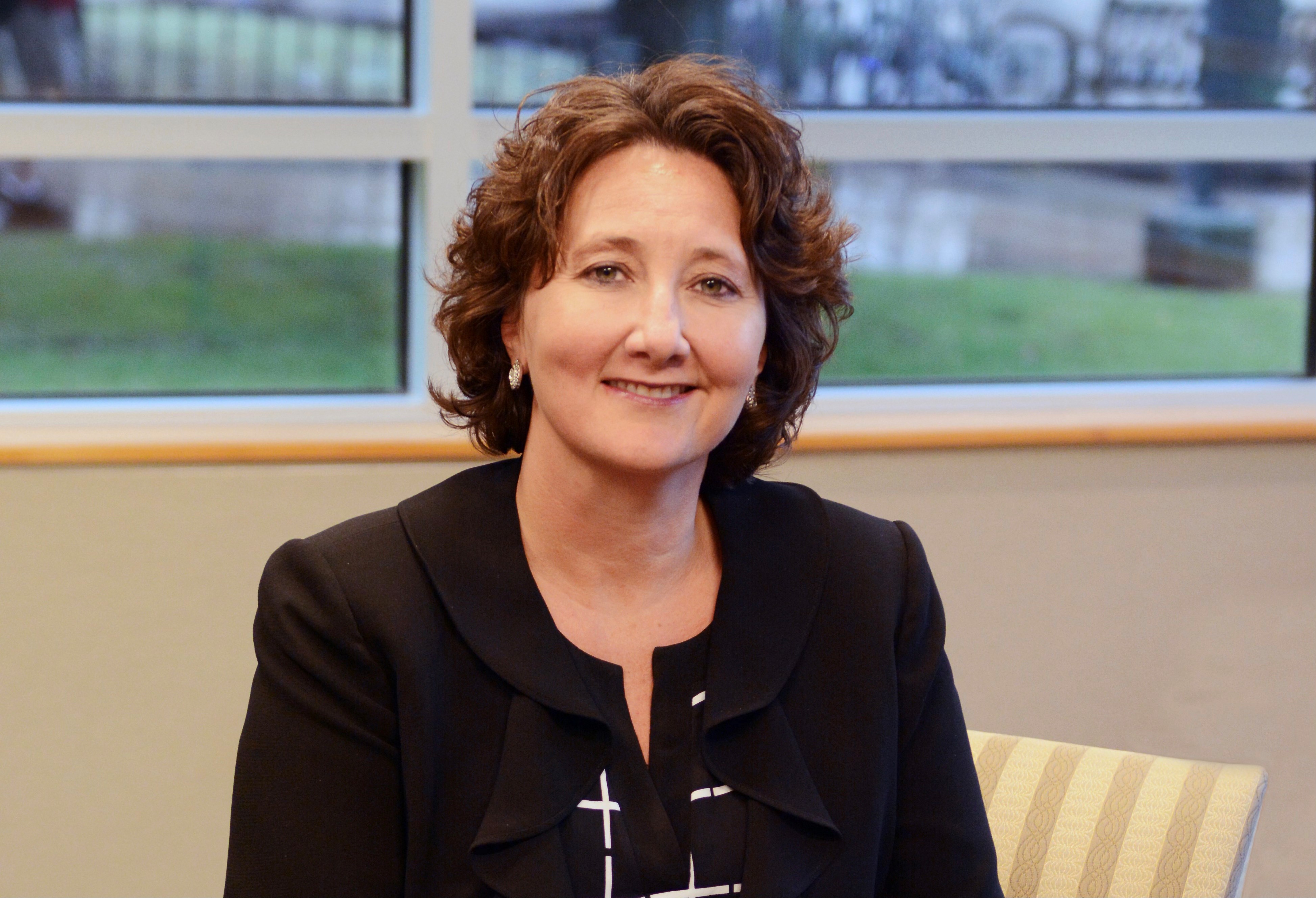
Indigenous Nations and the Contours of #LandBack
As Indigenous nations reclaim authority to regulate lands within their territories, what does this mean for land use planning, regulatory conflicts, jurisdictional determinations, and more? This lecture will explore the laws of Indigenous nations, the domestic laws of the United States, and trends in international law.
Stacy Leeds is an experienced leader in law, higher education, governance, economic development and conflict resolution. She serves as Foundation Professor of Law and Leadership at the Sandra Day O’Connor College of Law, Arizona State University.
Leeds is Dean Emeritus, University of Arkansas School of Law and the first Indigenous woman to lead a law school. During her tenure as dean (2011-2018), Arkansas Law achieved the highest-ever rankings: No. 1 Best Value in Legal Education (National Jurist 2014) and 33rd among public law schools (U.S. News 2014). Leeds then served as the inaugural Vice Chancellor for Economic Development at University of Arkansas (2017-2020).
View/listen to the recording here.
The 17th Annual with Molly Mowery
April 15, 2021
Executive Director, Community Wildfire Planning Center
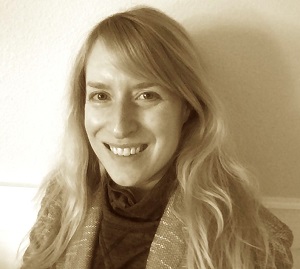
Executive Director, Community Wildfire Planning Center
Planning for Wildfire-Resilient Communities in an Era of Uncertainty
Molly Mowery, AICP serves as the Executive Director of the Community Wildfire Planning Center, a 501(c)3 non-profit whose mission is to support community wildfire risk reduction. She also is founder of Wildfire Planning International, a land use and wildfire mitigation planning consulting firm that provides services to communities across North America. Throughout her career, Ms. Mowery has successfully launched and managed national wildfire programs, including the Fire Adapted Communities in partnership with the U.S. Forest Service and the Community Planning Assistance for Wildfire program. She has also designed and delivered national trainings to educate land use planners and fire professionals including the first Wildland-Urban Interface Planning curriculum for the U.S. Fire Administration. Ms. Mowery is a certified planner and member of the American Planning Association (APA), she serves on the Sustainable Development Code Advisory Council, and is lead author of the APA Planning Advisory Service Report 594: Planning the Wildland-Urban Interface. Ms. Mowery holds a Bachelor of Arts degree from Naropa University and a Master in City Planning degree from the Massachusetts Institute of Technology.
View/listen to the recording here.
The 16th Annual with Anita Earls
April 16th, 2020
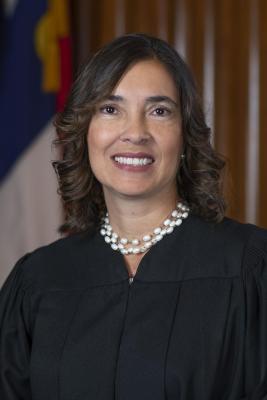
Associate Justice of the North Carolina Supreme Court
Implications of Implicit Racial Bias for Environmental Justice
Research in cognitive science generally, and specifically over twenty years of research on implicit social cognition, suggests that implicit racial biases impact all decision-making. While there are important debates to have about the reliability of the implicit association test to predict discriminatory behavior, and the extent to which more commonly understood explicit racial biases continue to flourish, Justice Earls will explore how the possibility that implicit racial bias operates in the law might influence recommended legal and policy interventions to address environmental racism and the quest for environmental justice. To be sure it means we urgently need to implement discriminatory impact standards of proof, but are there additional lessons to be learned? Earls will refer to specific community-based environmental justice campaigns in the South as potential illustrations of some of the issues and talk a little about the role of state courts.
View/listen to the recording here.
The 15th Annual with John R. Nolon
April 4th, 2019
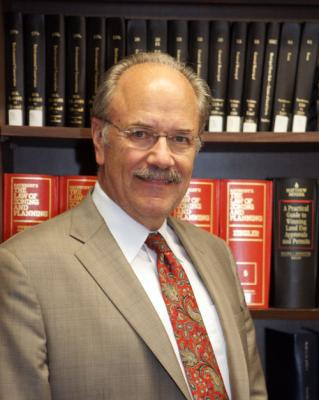
Distinguished Professor of Law at the Elisabeth Haub School of Law at Pace University
Calming Troubled Waters: Local Solutions
In the 19th Century, the law struggled to regulate water “because the causes which govern and direct [its] movements are so secret, occult and concealed.” Frazier v. Brown (Ohio, 1891) Today, when science has revealed the secrets of hydrology, the law remains “occult.” Federal jurisdiction over water is incomplete; the promise of the states’ police power is unfulfilled, and local governments lack the capacity to use their extensive land use authority to protect their citizens. If these systems of law were coordinated, the legal system could be as interconnected as the hydrological cycle. Professor Nolon’s lecture explores the local foundations of a comprehensive regime of water law, building from the bottom-up to integrate the legal authority and resources of local, state and federal governments. This regime serves as a model for dealing with the catastrophe that is climate change and the imperative that the law evolve to meet the challenges of society.
14TH ANNUAL WITH THOMAS W. MITCHELL
April 12th, 2018
Interim Dean and Professor at Texas A&M University School of Law, where he also co-directs the Program in Real Estate and Community Development Law
"How to Address Racial Disparity in Property Ownership"
Thomas W. Mitchell will address how legislative reform of property laws that negatively impact disadvantaged property owners in disproportionate ways can be achieved although there are often significant barriers that stymie such reform efforts for such property owners. He will draw upon his experience serving as the reporter (principal drafter) for the Uniform Law Commission of the Uniform Partition of Heirs Property Act, a uniform act enacted into law in ten states thus far, as a case study of how such reform can be achieved working with elite legal actors and activists at the local and state level. Mitchell serves as Please join us at 5:15pm for a light reception before the lecture.
13th Annual with Uma Outka
April 13th, 2017
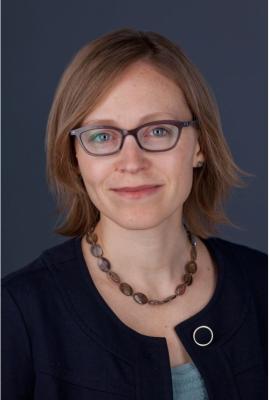
Associate Professor at the University of Kansas School of Law, as well as a Visiting Scholar of Energy and Land Use Law at Florida State University College of Law
"Shifting Energy Landscapes"
Uma Outka will address the energy sector’s dynamic, transitional, and uncertain moment through the lens of energy landscapes – the physical landscapes that narrate a shift in land use for energy in the United States, and the regulatory landscape framing the pace and ambition of the low-carbon trajectory. With a focus on renewable
energy, the Lecture will highlight drivers and implications of these shifting landscapes as they bear on the goal of decarbonization and electric power.
12TH ANNUAL WITH PATRICIA SALKIN
April 14th, 2016
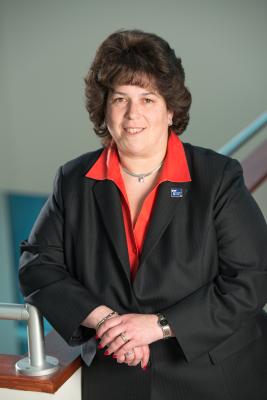
Dean and a Professor of Law at Touro Law Center and the Interim Provost of the Touro College Graduate and Professional Divisions
"Gaming the Future: A Winning Strategy for Land Use and Sustainable Development"
Patricia Salkin's talk, titled "Gaming the Future: A Winning Strategy for Land Use and Sustainable Development," explores how land use and land development can be viewed through the lens of game theory with many players in the land use game and multiple agendas and strategies to ultimately create winners and losers. Dean Salkin will discuss the goals of community development and sustainability in terms of what ought to be the rules of the game and the winning strategies.
11TH ANNUAL WITH MICHAEL GERRARD
April 9th, 2015
Andrew Sabin Professor of Professional Practice and Associate Chair of the Earth Institute at Columbia Law School
"Climate CHange and Land use Law: A Strategy to Avoid the worst Impacts"
Michael Gerrard’s talk, titled “Climate Change and Land Use Law: A Strategy to Avoid the Worst Impacts,” explores how the latest climate projections paint a dire future unless radical measures are taken. Professor Gerrard will discuss how settled doctrines and practices in land use and environmental law will need to be revisited if we are to forestall the worst impacts of climate change, and cope with those that will occur anyway.
10th Annual with Lee Ann Fennell
April 9th, 2014
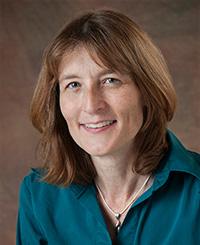
Max Pam Professor of Law and Herbert and Marjorie Fried Research Scholar at the University of Chicago Law School
“Co-location, Co-location, Co-location: Land Use and Housing Priorities Reimagined”
Lee Anne Fennell’s talk, titled “Co-location, Co-location, Co-location: Land Use and Housing Priorities Reimagined” explores how, when it comes to housing, what matters most is not geographic location alone, but rather proximity to other land uses and land users—that is, co-location. Fennell will examine how taking the idea of co-location seriously could advance housing policy and transform our understanding of land use possibilities and priorities.
9TH ANNUAL WITH ROBERT LIBERTY
February 7th, 2013
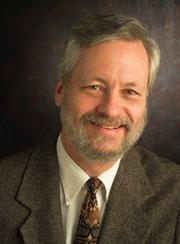
Director of the Urban Sustainability Accelerator at Portland State University; Marjorie Fried Research Scholar at the University of Chicago Law School
"Rising to the Land Use Challenge: How Planners and Regulators Can Help Sustain Our Civilization”
Robert L. Liberty's talk, titled "Rising to the Land Use Challenge: How Planners and Regulators Can Help Sustain Our Civilization," will address global climate change as only one of the multiplying signs that global civilization is threatened by humans' destruction of the natural systems that support us. "In this country many land use planners have the training, skills and knowledge to challenge the prevailing orthodoxy, to restate the necessity of the regulation of the use of land and to play a leadership role in preparing our nation and our world for the changes that we must make to sustain our civilization," he says.
















